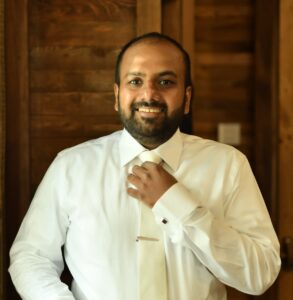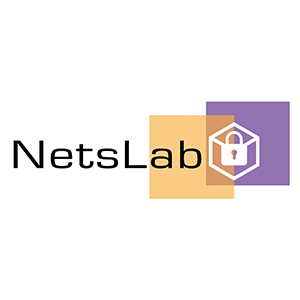SECURENET 2024
O’Brien Centre for Science
University College Dublin
Tuesday, 21 May 2024
Topics of interests:
- Physical layer security for 6G
- Zero-touch security solutions
- Post-Quantum security and cryptography
- Security and Privacy challenges for AI/ML technologies
- AI-based security and Privacy solutions for wireless systems
- Security and Privacy of Edge AI
- Security and privacy Edge Computing and Network Slicing
- Explainable AI for Security and Privacy
- Security Automation and Orchestration
Welcome Coffee and Registration
Opening Remarks

Bartlomiej Siniarski, PostDoctoral Researcher / Project Manager, University College Dublin
Bartlomiej Siniarski currently holds the position of a post-doctoral researcher and serves as a project manager for the EU H2020 SPATIAL project at University College Dublin. His academic journey commenced with undergraduate studies in Computer Science at both University College Dublin (Ireland) and the University of New South Wales (Australia). In 2018, he successfully earned his doctoral degree. His expertise lies in the field of IoT networks, with a particular focus on the design, data collection, storage, and analysis derived from intelligent sensors. Moreover, Bartlomiej has actively contributed to various projects, including MSCA-ITN-ETN, ICT-52-2020, and H2020-SU-DS-2020, which are dedicated to addressing challenges in network security, performance, and management within 5G and B5G networks.
Welcome Speech about UCD and CS

Introduction to Netslab

Assoc. Prof. Madhusanka Liyanage
Associate Professor / Ad Astra Fellow and Director of Graduate Research, School of Computer Science, University College Dublin, Ireland
Madhusanka Liyanage is an Assistant Professor/Ad Astra Fellow and Director of Graduate Research at University College Dublin, Ireland. He is also a Docent/Adjunct Professor at the University of Oulu, Finland, the University of Ruhuna, Sri Lanka, and the University of Sri Jarawardhenepura, Sri Lanka. He holds a Doctor of Technology degree from the University of Oulu, Finland (2016) and prestigious fellowships during 2018-2020. Madhusanka has been a Visiting Research Fellow at various renowned institutions globally. He received the "2020 IEEE ComSoc Outstanding Young Researcher" award and was ranked among the World's Top 2% of Scientists in 2021 and 2022. He has over 150+ publications, authored books, edited books, and two patents. Additionally, he serves as an expert consultant at European Union Agency for Cybersecurity (ENISA) and has secured over 5 Million Euro research funding. Currently, he leads three large EU H2020/Horizon Europe projects and is the director of the Netslab team at University College Dublin, Ireland. More info: www.madhusanka.com
Talk 1- Detection and Mitigation of Poisoning Attacks in Federated Learning with Adaptive Federated Averaging
Luis Muñoz-González, Telefonica Spain
Dr Luis Muñoz-González is a senior research scientist at Telefónica Research in Barcelona, Spain. Before that, he worked as a research associate in the Department of Computing at Imperial College London, being part of the Resilient Information Systems Security (RISS) group. Dr Muñoz-González obtained a PhD on machine learning at University Carlos III of Madrid, Spain. His PhD thesis on Gaussian Process models for nonstationary regression was recognized with the Extraordinary Doctorate Award. His current research interests lie at the intersection of machine learning and cyber security, including the security of machine learning, federated learning, and machine learning for cyber security.
Abstract: At training time, Federated Learning algorithms can be vulnerable to data and model poisoning attacks, where attackers can manipulate the parameters of the global model to produce indiscriminate or targeted errors when the model is deployed. In this talk we present, adaptive federated averaging, a technique for mitigating the effect of such attacks and detect the malicious participants trying to compromise a federated learning task, including a robust aggregation algorithm capable of ignoring malicious updates and a Hidden Markov Model to model the participants’ behaviour during training.
Coffee Break
Talk 2- Exploring Secure, Intelligent, Programmable SAGINs
Sandra Scott-Hayward, Queen's University Belfast, UK
Sandra Scott-Hayward is an Associate Professor with the School of Electronics, Electrical Engineering and Computer Science, and a Member of the Centre for Secure Information Technologies at Queen’s University Belfast (QUB). She began her career in industry and became a Chartered Engineer in 2006. Since joining academia, she has contributed security designs and solutions for softwarized networks based on her research on network security architectures and security functions for emerging networks, specifically considering threat detection and protection mechanisms in programmable networks. She received Outstanding Technical Contributor and Outstanding Leadership awards from the Open Networking Foundation in 2015 and 2016, respectively, having been elected and serving as the Vice-Chair of the ONF Security Working Group from 2015 to 2017. Dr. Scott-Hayward serves on the editorial board for IEEE Transactions on Network and Service Management, and IEEE Transactions on Machine Learning in Communications and Networking. She is Vice-Chair of the IEEE NetSoft Steering Committee. She is Director of the QUB Academic Centre of Excellence in Cyber Security Education (ACE-CSE), co-lead of the QUB Leverhulme Interdisciplinary Network on Algorithmic Solutions (LINAS) doctoral training programme, and a Polymath Fellow of the Global Fellowship Initiative at the Geneva Centre for Security Policy (GCSP) from 2021 to 2023. With LINAS and GCSP, she explores the impact of ML and AI technologies on security and society.
Abstract: Space-air-ground integrated networks (SAGINs) extend terrestrial network infrastructure to non-terrestrial networks (NTNs), integrating satellite and unmanned aerial vehicle communications, high-altitude platforms, and space systems. These integrated networks can provide connectivity to remote locations, enhance service delivery, and support new ventures. NTN integration is an ambitious mission in 3GPP to extend the Internet to sky and outer space. Machine learning (ML) and artificial intelligence (AI) solutions are being explored to advance cooperative and autonomous behaviour, self-organisation, and optimisation in SAGINs with associated security challenges. In this talk, we will explore the security, intelligence, and programmable aspects of SAGIN.
Talk 3- Designing a (Fully) Homomorphic Encryption Scheme to encrypt the data exchanged in a Federated Learning Model
Konstantinos Lessis, Wings
Konstantinos Lessis is a data scientist at WINGS ICT Solutions. He has participated in several research and development projects. His research interests focus on the design, and development of Machine Learning models, with an emphasis on the use of ML and AI in cybersecurity, anomaly detection in critical-infrastructures, predictive maintenance and supply chain optimization.
Christina Karousatou, Wings
Dr Christina Karousatou is a solution architect in WINGS ICT Solutions. She received her PhD in Computer Science from Aix-Marseille University in 2017 and continued her research on mathematical optimization problems at TU Darmstadt as a post-doctoral fellow till 2020. In 2022 she joined the WINGS ICT solutions team and has undertaken task leading and work package leading roles in various EU funded research projects.
Abstract: Federated learning provides a new way to use Machine Learning models as there is no need to exchange data. The only information exchange between the nodes regards the ML model’s parameters like the weights of a deep neural network. Although FL makes it possible to extract knowledge of training data without direct data exchange, transmitting the model updates could enable an attacker to infer private data. Our proposal for secure FL leverages the (Fully) Homomorphic Encryption (FHE) approach. FHE enables computation on encrypted data without the need for decryption, thus offering a robust solution for privacy-preserving FL. In this presentation we will examine the design considerations for integrating FHE into the Federated Learning model built for CONFIDENTIAL 6G use cases.
Talk 4- Confidential Computing and Privacy-preserving Technologies for 6G Confidential Networking
Shushu Liu, Nokia, Finland
Shushu Liu is currently a researcher at Nokia Bell Labs, Espoo, Finland. She received the Ph.D. degree from Department of Communication and Networking, Aalto University, Espoo, Finland, in 2022. Her research interests are in security and privacy in 5G/6G network. Dr. Liu is author of more than 20 peer-reviewed publications and is serving as reviewer of Wireless Communication Magazine, IEEE Internet of Things Journal, IEEE Access Journal, Information Sciences, etc.
Abstract:The sixth generation (6G) of cellular networks is expected to provide a reliable, trustworthy, and resilient service with substantial increase of coverage and network heterogeneity. The emerging technologies such as post-quantum cryptography (PQC), artificial intelligence (AI), machine learning (ML) and distributed ledger technology (DLT) are playing a significant role in achieving the 6G objectives. This talk focuses on confidential networking in 6G, referring to the protection of data transmitted over networks with encryption and secure protocols such as Transport Layer Security (TLS) with regards to new requirements and architectures for the 6G security and privacy such as authentication, encryption, access control and communication.
Networking Lunch and Poster Session
Talk 5- Recent advances in security and trust for network orchestration and management
Engin Zeydan, CTTC, Spain
Engin Zeydan received his PhD degree in February 2011 from the Department of Electrical and Computer Engineering at Stevens Institute of Technology, Hoboken, NJ, USA. He is currently a senior researcher in the Services as Networks (SaS) Research Unit in CTTC in Barcelona, Spain. He was the Project Coordinator of the European H2020 5GPP MonB5G project (2021-2023). Dr. Engin Zeydan has many years of experience as a researcher in EU Framework Programmes at technical and administrative levels in both industry and research organizations and has been involved in several projects including FP7 STREPs, Celtic, ITEA and H2020 as Technical Lead and WP Lead. His research activities include outstanding publications (more than 120 papers in leading conferences and journals and 10 national patents) and successful participation in research-funded projects mainly focused on telecommunications and data science/engineering.
Talk 6- Automated Analysis and Synthesis of Message Authentication Codes
Julian Thomas, Friedrich-Alexander-Universität
Julian Thomas is a PhD student in cryptography at the Friedrich-Alexander-Universität Erlangen-Nürnberg in Germany, and He is working on the European Confidential 6G project. His research interested are in the formalizations and automatication of privacy-enhancing cryptographic primitives as well as post-quantum cryptography.
Talk 7 : Blockchain-based Consensus Mechanisms for Detecting Spectrum Access Violations
Madhusanka Liyanage, UCD
Madhusanka Liyanage is an Associate Professor/Ad Astra Fellow and Director of Graduate Research at University College Dublin, Ireland. He is also a Docent/Adjunct Professor at the University of Oulu, Finland, the University of Ruhuna, Sri Lanka, and the University of Sri Jarawardhenepura, Sri Lanka. He holds a Doctor of Technology degree from the University of Oulu, Finland (2016) and prestigious fellowships from 2018 to 2020. Madhusanka has been a Visiting Research Fellow at various renowned institutions globally. He received the "2020 IEEE ComSoc Outstanding Young Researcher" award and was ranked among the World's Top 2% of Scientists in 2021, 2022, and 2023. He has over 200+ publications, authored books, edited books, and two patents. Additionally, he serves as an expert consultant at the European Union Agency for Cybersecurity (ENISA) and has secured over 5 Million euros in research funding. Currently, he leads three large EU H2020/Horizon Europe projects and is the director of the Netslab team at University College Dublin, Ireland. More info: www.madhusanka.com
Coffee Break
Panel Discussion (All Speakers) : Safeguarding Tomorrow's Connectivity: Exploring Security and Privacy in the 6G Era
Drasko Draskovi, Abstract Machines, France
Drasko is an IoT expert with over 15 years of professional experience. He hacked embedded Linux SW and HW device drivers, designing complex wireless systems in telecom industry: he was working on OMAP platform in Texas Instruments, designed 4G multi-protocol femto-cells in Alcatel-Lucent and worked on 5G and blockchain solutions in Nokia. Drasko earned his reputation in open-source community as an author of numerous projects - like WeIO or Mainflux. He is one of the main contributors of the Linux Foundation's EdgeX Foundry project. Drasko is an author of the book "Scalable Architecture for the Internet of Things" published by O'Reilly and vivid conference speaker, sharing his thoughts on modern software design and how Internet should be decentralized. He holds a MSc in Electrical Engineering from Belgrade University.





